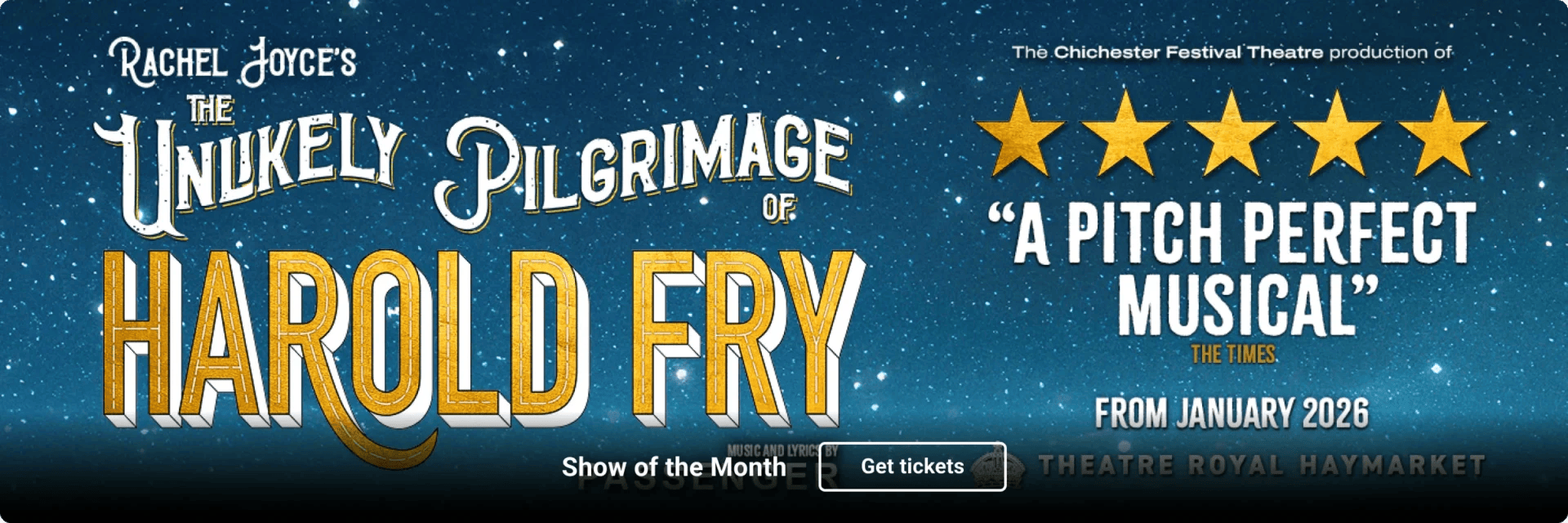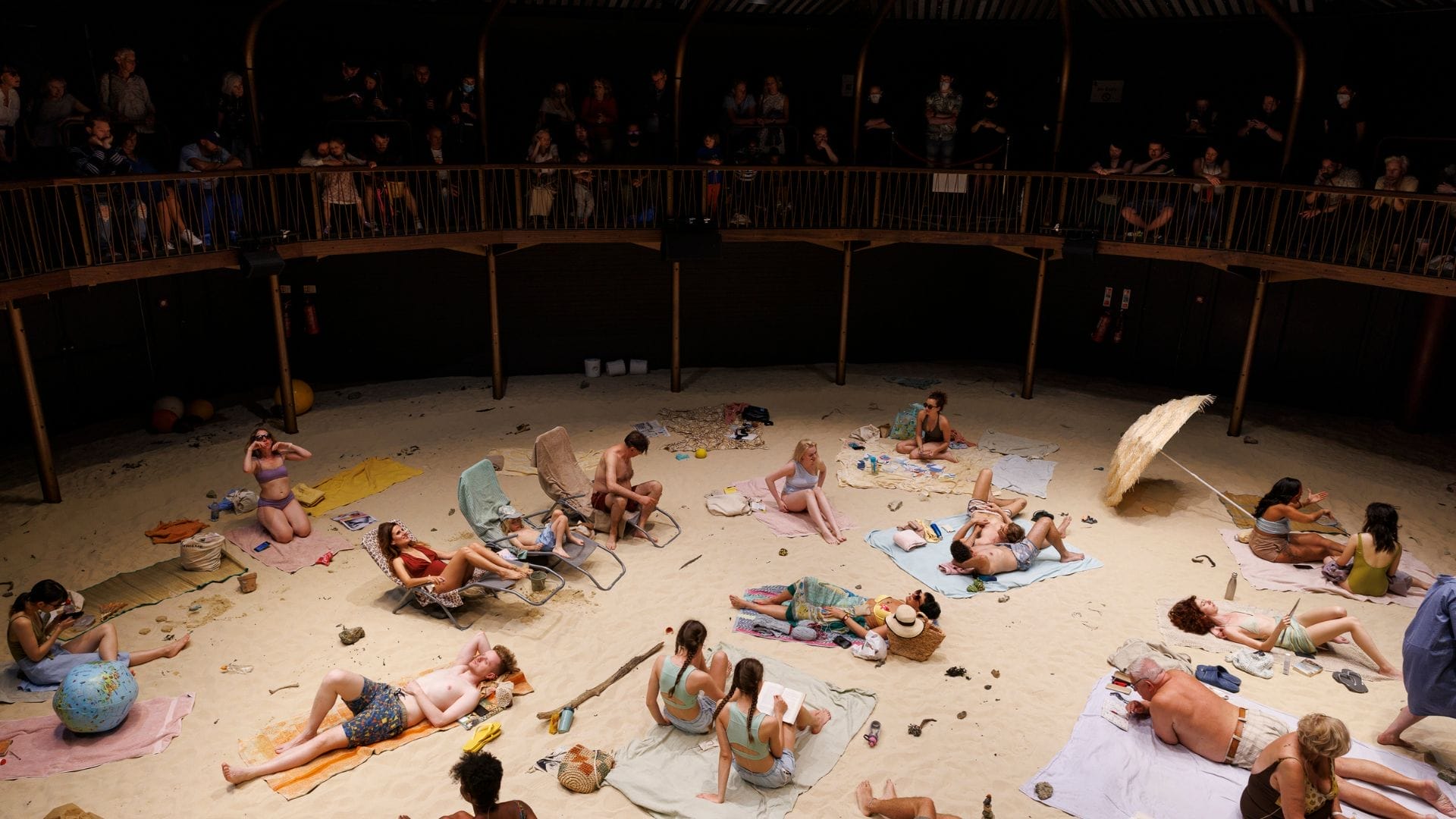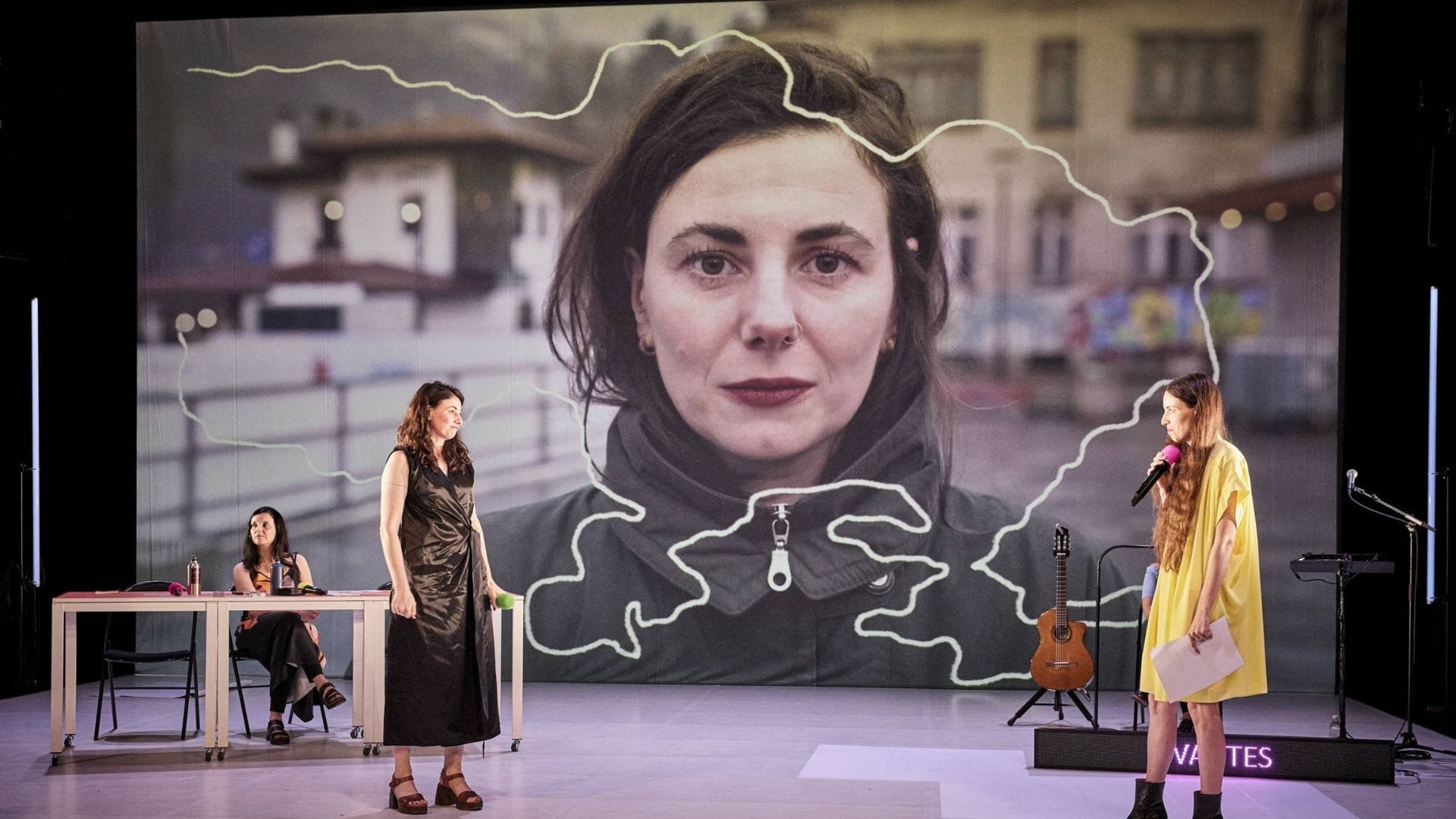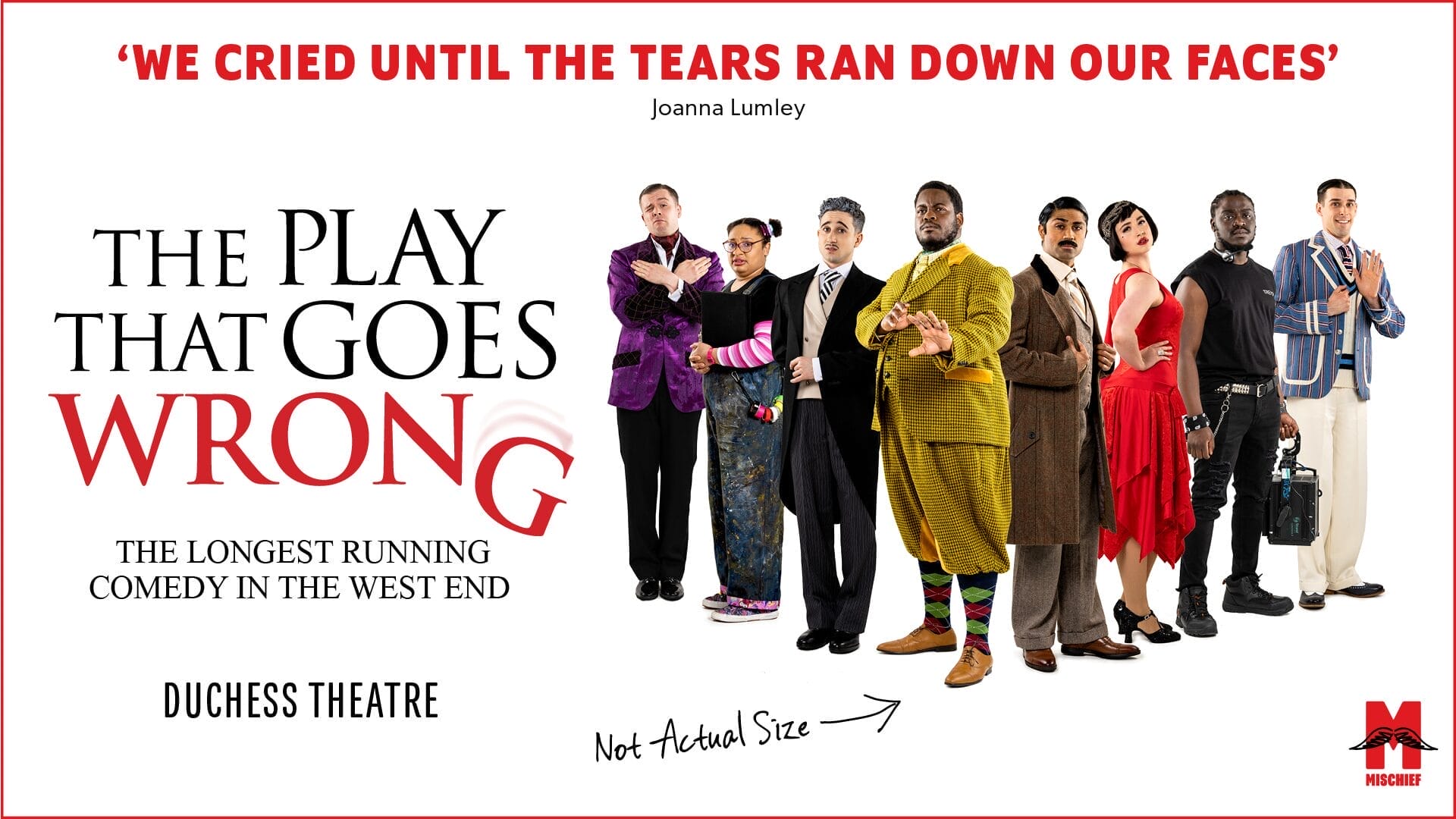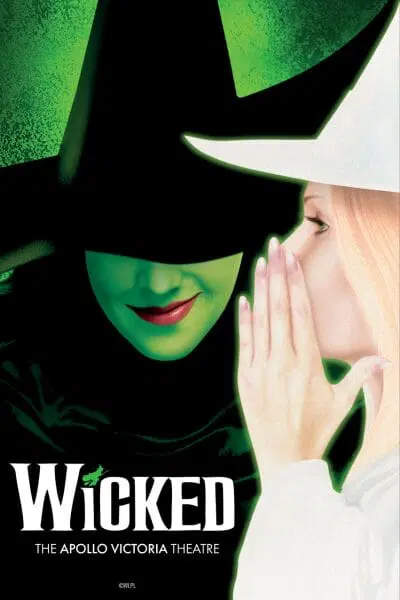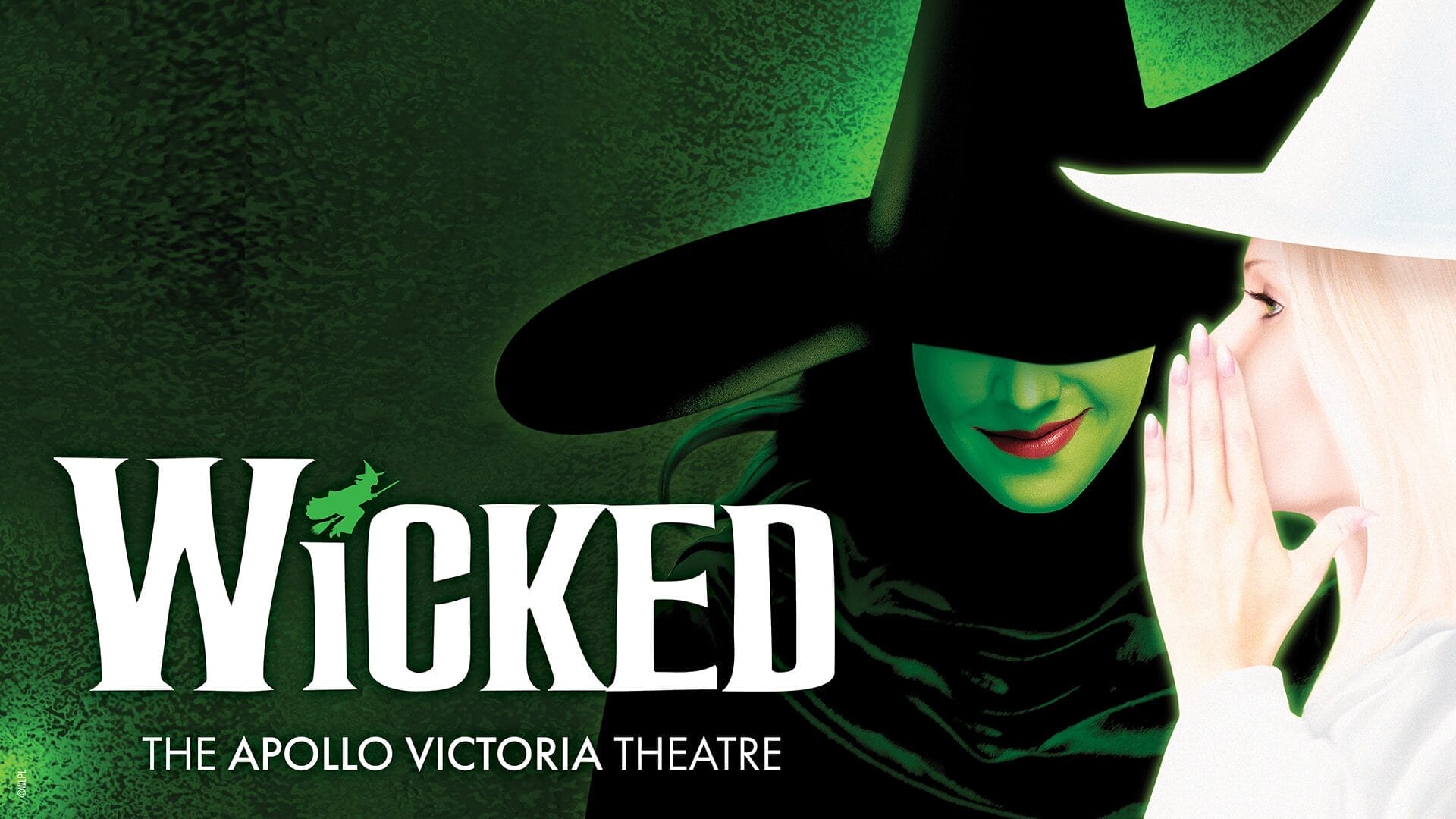Adam Lazarus is the writer and star of Daughter, a darkly satirical piece facing toxic masculinity head on, distilled into the figure of a very funny, engaging and troubled man.
Provoking passionate discussions from Toronto to Sydney and Somerset (Latitude Festival), Daughter became one of the most talked about shows at the Edinburgh Festival Fringe 2018 and will now have its London premiere at Battersea Arts Centre on Tue 3 – Sat 28 March 2020.
Daughter is having its London premiere at Battersea Arts Centre, what can you tell us about it?
I’m really excited to be coming to London with Daughter. I love London and I love the way the city loves theatre. Audiences really dig into the work they see.
We’re excited, in particular, to perform at Battersea, a theatre with a unique focus on community and engagement. This aligns with my team’s interest in bouffon and specifically Daughter’s handling of the audience/art relationship. We want to engage.
Daughter is a challenging piece of feminist art that asks profoundly difficult questions about complicity in the safeguarding and perpetuation of misogyny. My co-creators – Ann Marie Kerr, Melissa D’Agostino and Jivesh Parasram – and I have crafted a play that stirs up difficult thoughts and feelings, and we want people to talk. After every performance, we hold a post-show conversation where audience members are invited to talk about the work, the world, and the future. We can’t wait to have that discussion with the London theatre community.
What inspired you to write Daughter?
I work predominantly in the theatrical style of bouffon – the art of satire – and after 15 years of creating wild characters, I got to a point where I wanted to make a piece that was stripped of the extreme masks of the bouffon form.
I wanted to create a monster that was more subtle and relatable. A piece that explored the banality of evil. I had two points of inspiration for the piece.
The first was raising my own kids. All the time, I was thinking deeply about my daughter and my son, and how I wanted them to be good people. How do I raise my daughter in a world that’s built to suppress her? And how I do I raise my son to be person who’s not a fucked-up misogynist?
The second point of inspiration came in the form of a very celebrated and beloved Canadian radio and TV personality, Jian Gomeshi, who was accused by multiple women of assault and harassment. It was a shock to the nation. Jian was our friend. He interviewed Joni Mitchell. He took down Billy Bob Thornton when he knocked Canada. We all felt betrayed. And we felt defeated when he was acquitted.
It was the era of pre-Trump, pre-#MeToo, pre-#TimesUp, but the movements were bubbling up. I wanted to create a portrait of a man who people loved but was severely problematic. A character who possessed revered traits of masculinity that needed to die. A character who had done bad things in his past. A man that some would relate to, others forgive, and others condemn – or any unique combination of the above.
And Daughter was born.
Why was it so important for you to tackle this subject on stage?
Theatre is one of the last places where community gathers together, and I make theatre to engage and challenge community. Specifically, in the bouffon form, the laughter in the room says a lot about the person. It reveals where you are complicit with the joke, against the joke, where the joke is beyond you.
For Daughter, there is an active experiment going on in the space each time The Father asks the room “Do you know what I mean?” The answers are very telling and sometimes scary. When someone says no and someone says yes, I want those people with their differing opinions and perspectives to speak to each other after the show. I believe this is where change begins.
Have there been any changes since its critically acclaimed run at Edinburgh Fringe?
Throughout the Edinburgh run, I refined the show to its final state and not much of the text has changed – save the improvised moments. We also solidified the post-show conversation as an essential part of the piece. Wherever we play the show, it must be followed by that conversation.
Unfortunately, the show is as relevant today as it was the day we premiered it. I have a wish that one day the show will be antiquated. It will be performed behind glass, where you can’t hear the actor, and the text roles by on surtitles, and audiences will walk by and say: ‘remember when that kind of guy was a thing?’ We’re nowhere near that point yet.
What surprised you the most about the audience reaction in Edinburgh?
How many people stayed for the post-show conversation. People want to engage with this show!
What would you say to anyone thinking of coming to see Daughter?
It’s a very funny show, until it’s not. It’s a bouffon piece. It’s sneaky. It’s about you. It’s art. It’s acting. It’s a conversation starter. Please come.
Main Image: DAUGHTER by Adam Lazarus. Photo by John Lauener

